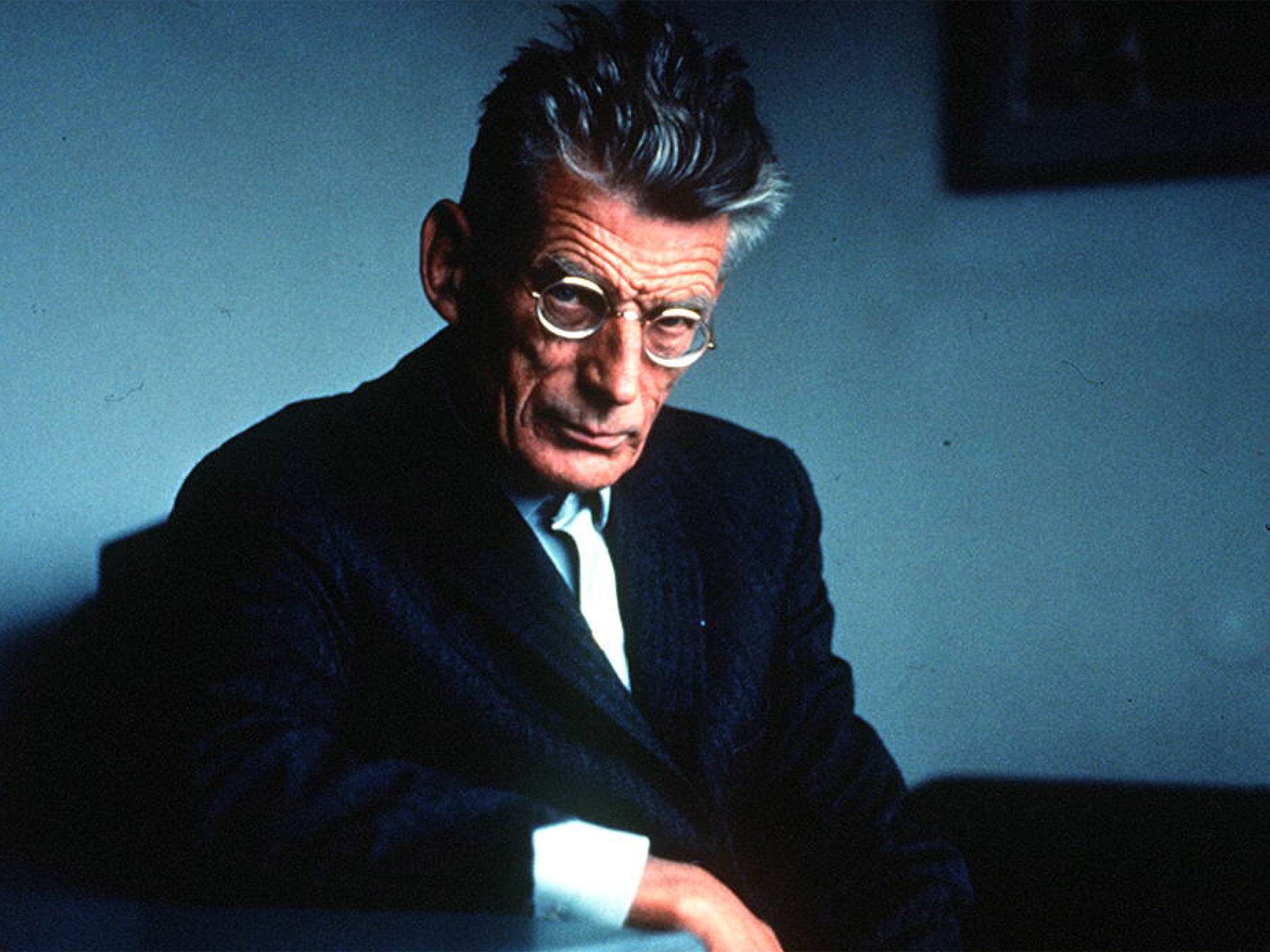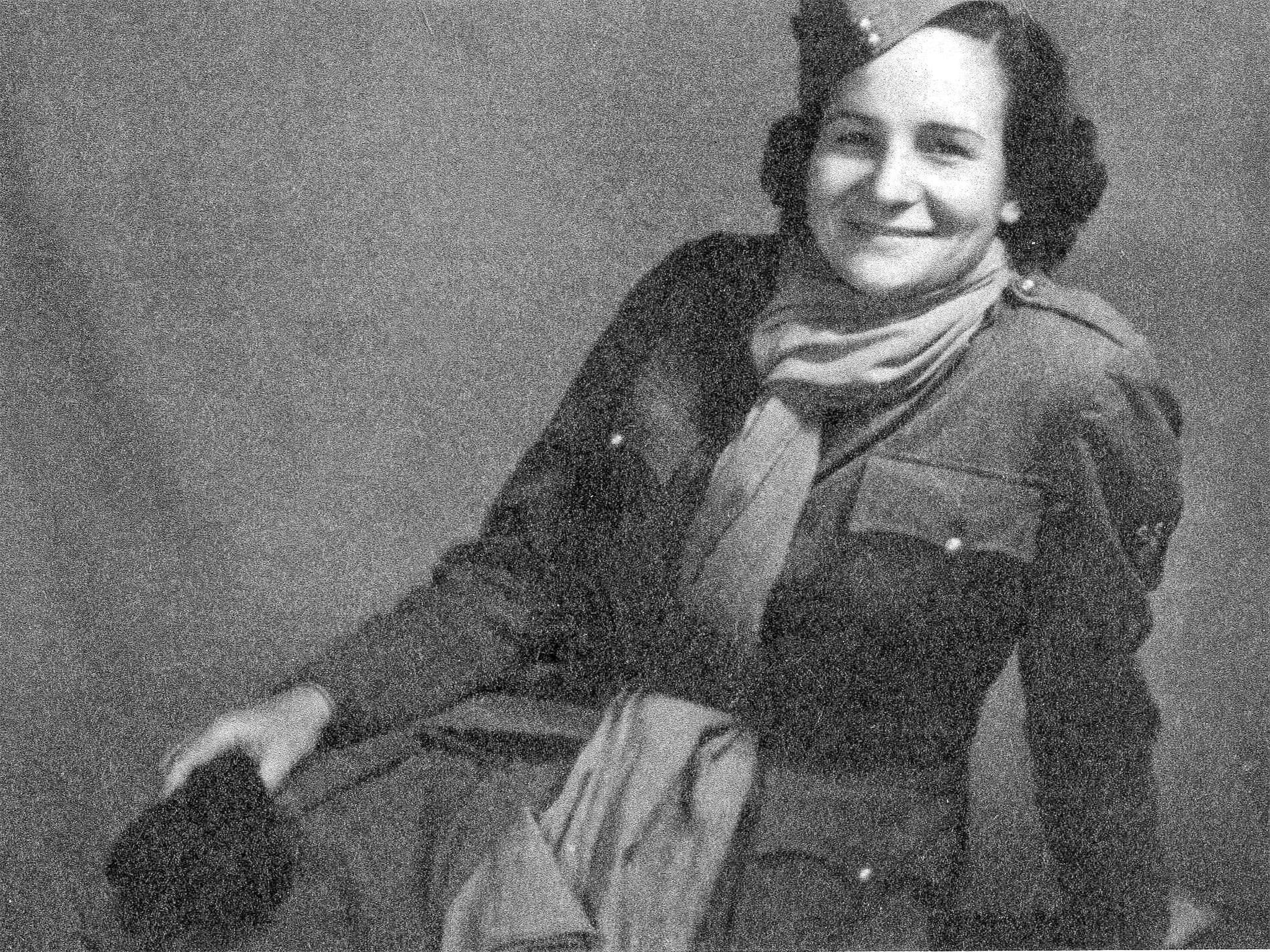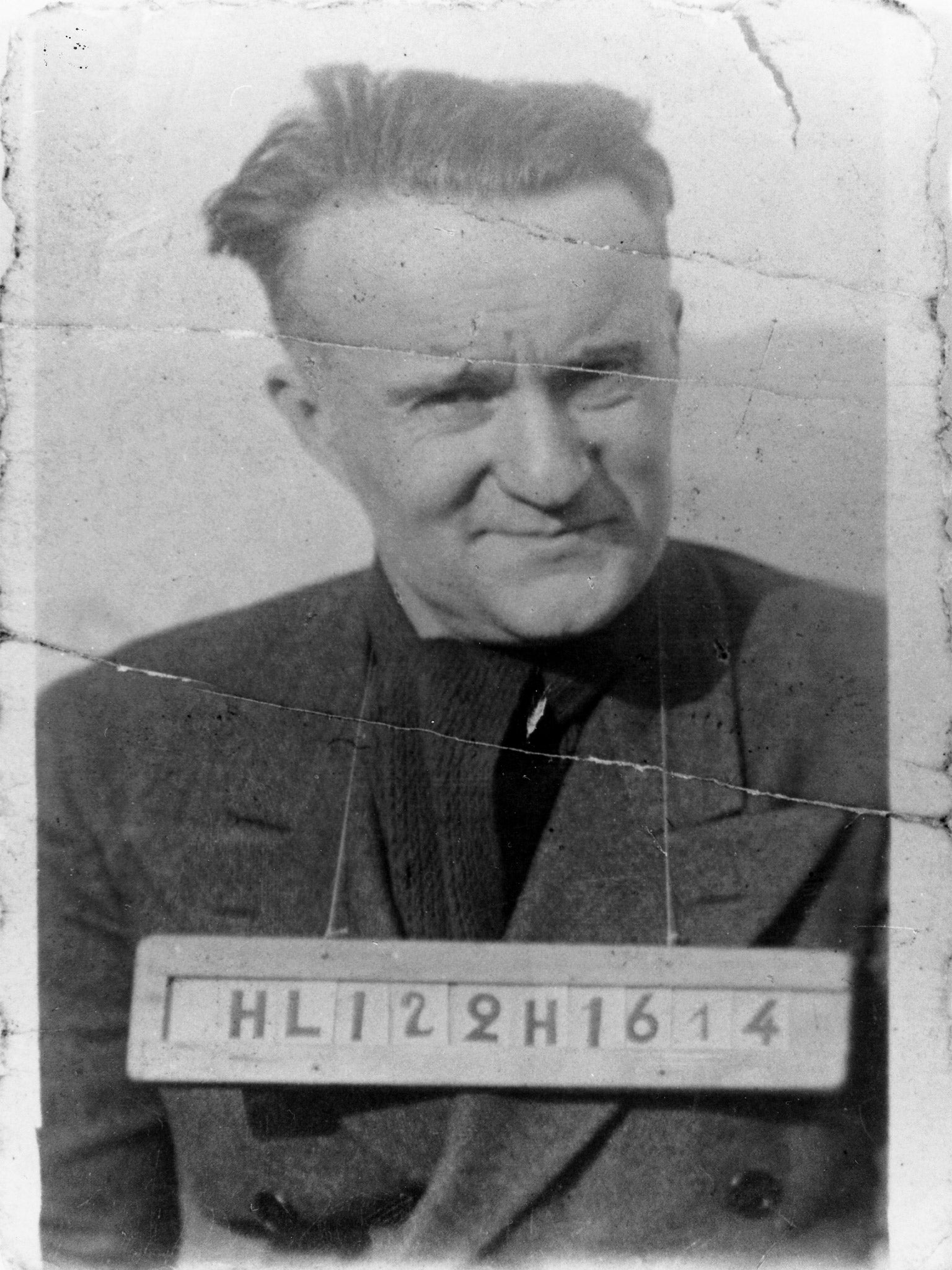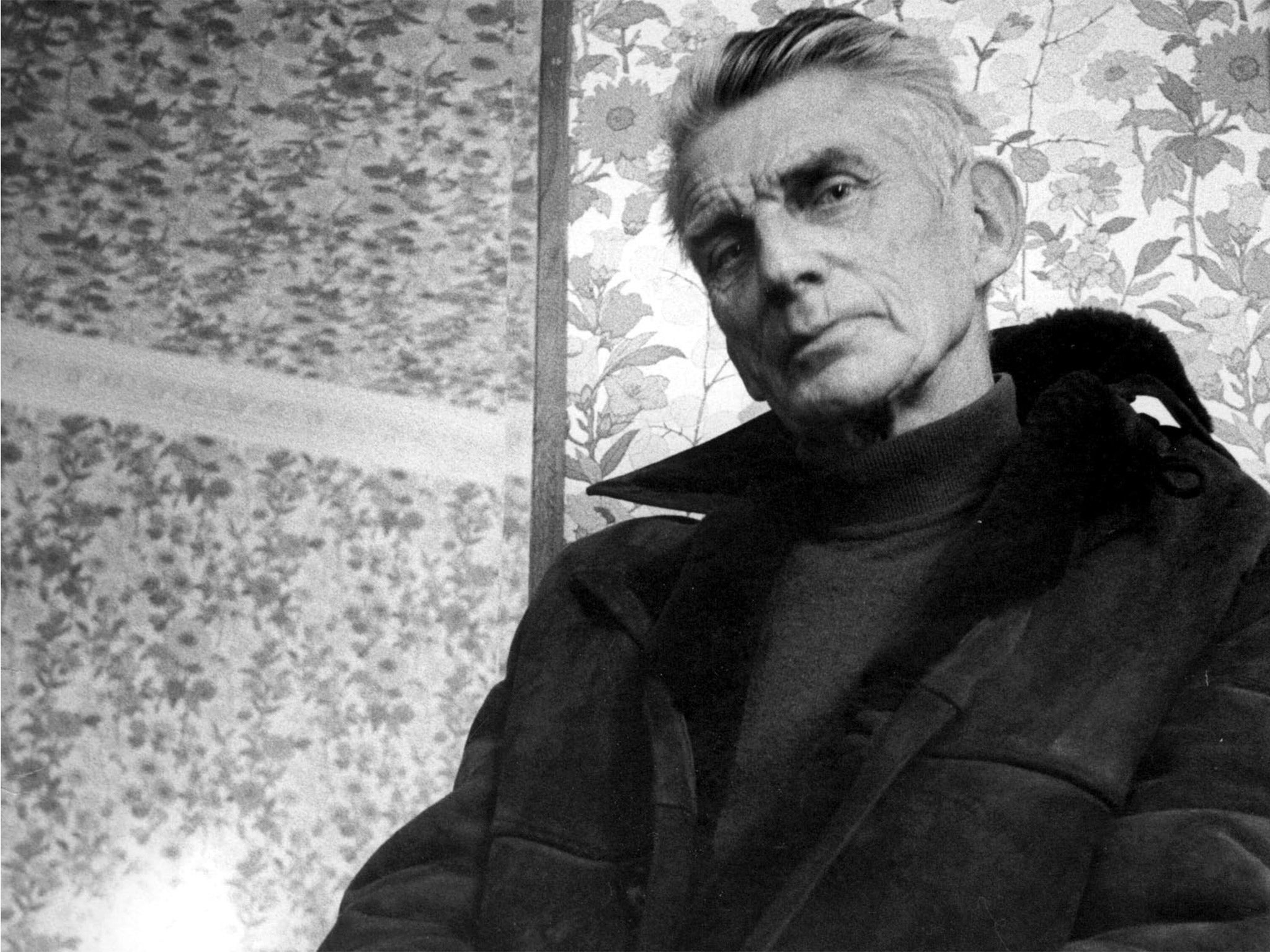Samuel Beckett's biographer reveals secrets of the writer's time as a French Resistance spy
As this year's Samuel Beckett festival opens in Enniskillen, James Knowlson, recalls how the Irish writer risked his life for liberty and narrowly escaped capture by the Gestapo

Your support helps us to tell the story
From reproductive rights to climate change to Big Tech, The Independent is on the ground when the story is developing. Whether it's investigating the financials of Elon Musk's pro-Trump PAC or producing our latest documentary, 'The A Word', which shines a light on the American women fighting for reproductive rights, we know how important it is to parse out the facts from the messaging.
At such a critical moment in US history, we need reporters on the ground. Your donation allows us to keep sending journalists to speak to both sides of the story.
The Independent is trusted by Americans across the entire political spectrum. And unlike many other quality news outlets, we choose not to lock Americans out of our reporting and analysis with paywalls. We believe quality journalism should be available to everyone, paid for by those who can afford it.
Your support makes all the difference."Nothing to be done" is the opening line of Samuel Beckett's best-known play, Waiting for Godot. Yet, when faced with the German occupation of France and confronted by what the Nazis were doing to his Jewish friends in 1941, Beckett himself joined a Paris-based cell of British SOE (Special Operations Executive) named "Gloria SMH". "You simply couldn't stand by with your arms folded," Beckett said firmly to me.
Gloria SMH was set up and led by a French chemist from the Institut Curie in Paris called Jacques Legrand (code name "SMH") and the daughter of the Cubist painter Francis Picabia, Jeannine (code name "Gloria"). Yet, for three decades after the war, only a select few of Beckett's closest friends were aware of his dangerous activities as a liaison agent (and translator of secret reports) or that he had narrowly escaped arrest by the Gestapo in Paris in August 1942, when so many of his cell were betrayed and deported to concentration camps. Many of them died there, like his French assistant friend at Trinity College, Dublin, tennis partner and fellow agent, Alfred Péron, who tragically survived until the march out of the camp at the end of the war. Even fewer knew that Beckett had received the Croix de Guerre and the Médaille de la Reconnaissance Française from the French government after the war.
My own great advantage in writing about Beckett's work with the Resistance was that I could question him directly concerning his actions and motives in a series of weekly interviews over the summer and autumn of 1989. He was only too happy to clarify his wartime role and to explain exactly why, though Irish and in theory neutral during the war, he had joined the SOE.
Although I did not realise it at the time, this was to be the start of a long and tremendously exciting treasure hunt, an encounter with a world of espionage and resistance to Nazi occupation about which, at the outset, I knew virtually nothing. It was also to lead to a series of meetings and experiences as fascinating, memorable and moving as any I have ever experienced in the whole of my life.
Since the publication of my biography, more documents described at the time as "SECRET" have been opened to the public at the Public Record Office in Kew, including an interview with Beckett, stamped "TOP SECRET", by
H. W. Astor on 16 April 1945, to which I did not have access, and several revealing interviews with and memos about the Picabias.

Several of these meetings were crucial. One was with the debonair, unassuming SOE adviser, Gervase Cowell. This had a curious afterlife. At our second lunchtime meeting, the former diplomat/administrator (or so I regarded him at the time) greeted me with a beaming smile, saying: "Well, this is your lucky day." From his bag he then produced a lengthy debriefing with "Gloria", Jeannine Picabia, conducted on 14 March 1943 at SOE headquarters in London, after she had escaped from France across the Pyrenees. The document related, he said, to her SOE activities rather than to her work with the Special Intelligence Services. For that reason, he announced, with a wicked twinkle in his eye, he could legitimately make it available to me.
The debriefing turned out to be a positive goldmine of information on the work of Gloria's Resistance agents in Paris, Normandy, and Brittany, including the contributions of Beckett and Péron. Later, Cowell sent me a fuller, even more wide-ranging 1943 interview with Jeannine's mother, Gabrielle Buffet-Picabia, who, like her daughter, had escaped from Occupied France through Spain and Gibraltar. Her life – and the lives of over 40 other members of Beckett's cell, including Beckett and his future wife Suzanne – were to be totally transformed by the treachery of one man, Catholic priest Robert Alesch, notorious now for having betrayed hundreds of Resistance agents in several different sectors for his own financial gain.
It was only after Gervase Cowell's death in 2000, four years after the publication of my work, that I learned that this modest, mild-mannered adviser was the former MI6 officer and spy-master, who, while stationed in Moscow in the early 1960s, had run the British MI6 and American CIA major spy and double agent, Oleg Penkovsky (code name "Young"), who has been described as "the most important agent the West possessed throughout the Cold War". The Russian's intermediary was the British businessman (and MI6 agent) Greville Wynne.

Direct Embassy contacts with Penkovsky had been established by Janet Chisholm (née Deane), the Russian-speaking wife of a British diplomat in Moscow, "Ruari" Chisholm, himself a leading member of MI6. As Mrs Chisholm strolled in a local park with her young children, Penkovsky, under the guise of offering sweets to her children, would hand over microfilms of hundreds of top-secret documents. The "boxes of sweets" held, for instance, details of the entire Soviet arsenal of nuclear missiles at a time when Khrushchev was beginning to install medium-range ballistic missiles on the island of Cuba. (Penkovsky even gave the Americans an operating manual for the missiles.)
When the Chisholms returned to London for Janet to have a third child, Cowell and his wife Pamela took over as Penkovsky's controllers. The way of communicating top-secret documents was changed to a bottle of Harpic, fitted with a false bottom and placed casually on a lavatory floor. Partly as a direct result of knowledge derived from Penkovsky's activities, a pre-emptive strike on Russian nuclear sites by the USA was almost certainly averted.
Gervase Cowell is famous for making a crucial decision to ignore a secret phonecall which warned that a Soviet nuclear attack was imminent because he sensed (quite correctly) that Penkovsky had been arrested and that their agreed code – three breaths repeated in a second call a minute later – had been adopted by the KGB. Thinking back to the expert guidance Gervase Cowell had offered me in our conversations about espionage and the wartime SOE, I now recognise that his advice derived from a deep personal experience of that world. He was declared persona non grata and immediately expelled from Russia. Penkovsky himself was convicted of treason and executed in 1963. Greville Wynne was arrested and tried in a high-profile court case. Initially he was sentenced to eight years' imprisonment, but, a year later, he was exchanged for the Soviet spy, Konon Molodiy.
The documents released at Kew since I wrote about Beckett's activities in the war years contain the March 1945 interview with the writer himself, in which – with a first-class honours degree from Trinity College Dublin – amusingly he is described as "fairly intelligent and well educated". Not surprisingly, for I had talked to Beckett about what he did, the interview contains few surprises for me. Mainly it stresses how little Beckett knew of the wider cell outside his immediate circle of friends. Yet more light is thrown on how he and Suzanne escaped from the Gestapo by the skin of their teeth and provides names of some of Suzanne's friends who helped them in their first few weeks on the run to add to that of the French writer Nathalie Sarraute, in whose house Beckett told me they stayed, a fact confirmed by Sarraute.

Other interviews with Jeannine Picabia are more revealing. There was concern at first that she might have been "turned" by the Germans and this is well charted. Yet, even though it is agreed that she was vague and unreliable in interviews about dates and places and about some names, after a number of polite but highly intensive grillings, these suspicions are roundly dismissed. What does emerge from both the new interviews and the earlier debriefings is how constrained "Gloria" agents were by the lack of money and by difficulties of communication (having no transmitter of their own, they were forced to use Belgian and Polish cells' radios to contact London). Above all, the interviews set the activities of Gloria SMH in a wider context of Resistance activity and betrayal. Already in 1943, for example, it is clear that there was huge concern that the Abbé Robert Alesch was the likely traitor and that his treachery was still being continued in Lyon and the South of France, having raised the suspicions of "America's greatest female spy", Virginia Hall, about whom much has now been written, using the new Kew material.
While researching Beckett's involvement with the Resistance, I interviewed the extraordinary Germaine Tillion, one of the first 40-plus members of Gloria SMH (with Jacques Legrand) to be betrayed by Alesch. She had earlier been involved with one of the first Resistance cells, the "Musée de l'homme", and many of its members had been betrayed and her friends shot. Germaine was convinced that the traitor was the now notorious Albert Gaveau. She was, she said to me, so sure of this that she had hoped, if ever she had the chance, to "neutralise" him. She used the French word: "neutraliser". What exactly did she mean by "neutraliser", I asked her. "I had a revolver at the time," she calmly explained. Then she raised her hand to her forehead in an unmistakable gesture: "Phfut!" she said. (The word "neutraliser" is commonly used in this sense by French Special Forces.) Since then, I can never hear this verb, either in English or in French, without thinking of that tiny, bespectacled, 90-year-old lady, sitting in her armchair in the sitting-room of her country house in Brittany, calmly announcing her intention to blow out someone's brains and regretting that she had not been able to do so.
Germaine Tillion did not allow her terrible experiences in prison and a concentration camp to ruin her life. Indeed, she went on to write three great studies of Ravensbrück, a major book on the condition of women in North Africa as well as devoting herself to attacking human rights abuses such as torture in Algeria. Indeed, in the 1950s, at the time of the Battle of Algiers, having worked on social reforms in Algeria, she liaised between the French government and the Algerian National Liberation Front leader, Saadi Yacef, and helped to arrange a number of ceasefires. At 96, she was a vociferous opponent of the war in Iraq and on her death in April 2008, the French President Nicolas Sarkozy described her as an "exceptional woman for whom courage, dedication and humanism were lifelong guides".
One of the most moving of incidents occurred during a visit I made to Mauthausen concentration camp with the 80-year-old ex-inmate Pierre Weydert, a close friend of Beckett's former Trinity College friend, Alfred Péron, who was with Péron on the "death march", only a few hours before he died. I held the arm of the frail Pierre as, very slowly, we walked down the 186 steps of the quarry while he told me about the many prisoners/slave labourers who had died there, carrying huge blocks of quarried stone on their backs or in their arms. Few lived for more than a week, he said. Some committed suicide by throwing themselves down onto the rock floor beneath. On our return to the top, we went into one of the wooden huts where another inmate, a veteran too of the Spanish Civil War, sat by the door, exactly where he used to sit every day during their mutual incarceration. His hand rested on an ivory handled walking-stick, as, trembling, with tears running down his cheeks, he told us in a strong Spanish accent that his job had been to note down the names of the dead who had not returned that day. I shall never forget those tears or the ivory handled walking stick on which he leaned.
James Knowlson is emeritus professor at the University of Reading. His biography of Samuel Beckett is called 'Damned to Fame' (Bloomsbury Publishing)
Happy Days International Beckett Festival opens today with French and Yiddish productions of 'Waiting for Godot', and Adrian Dunbar's 'Catastrophe': 31 July to 10 August; happy-days-enniskillen.co.uk
Join our commenting forum
Join thought-provoking conversations, follow other Independent readers and see their replies
Comments